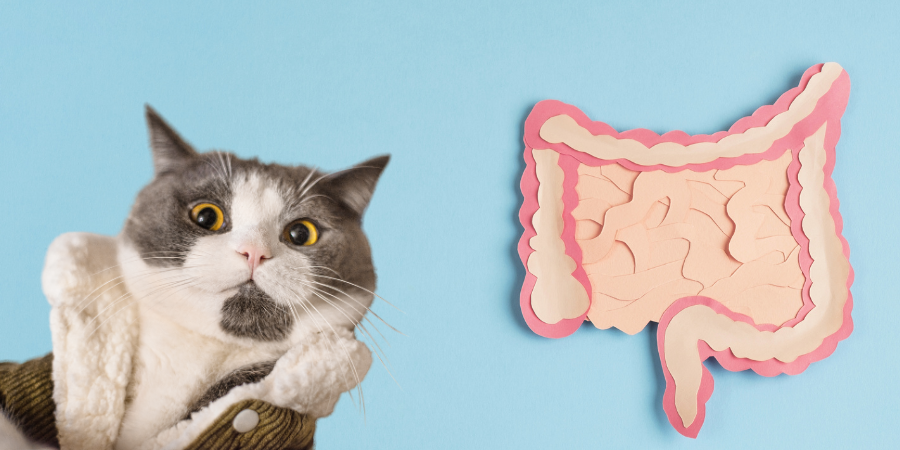3 Tips for Cat Digestive Health
To create a comprehensive digestive health plan for your cat , you must not only master the core principles of cat digestive health , but also make good use of the three key points of easily digestible staple food recommendations , small and frequent meals , and exercise management, to prevent constipation and hairballs in cats from diet to daily life.
1. Choose the right easily digestible staple food to improve your cat’s digestive health
- Identifying animal protein sources (such as chicken or salmon) reduces the risk of allergies and helps maintain your cat's digestive health.
- Adding prebiotics or probiotics can balance the intestinal flora and achieve optimal digestive health for domestic cats.
- An appropriate amount of dietary fiber (2–4%) can effectively prevent hairball accumulation and constipation in cats.
2. Cats eat small meals frequently: Regular and quantitative feeding rules to prevent constipation and diarrhea
- Feed 3–5 times daily, with each meal size limited to 10–15% of stomach capacity.
- Fixed feeding times, established a regular eating rhythm, and enhanced your cat's digestive health.
- Do not feed cats foods that are too high in fat or contain high-risk ingredients such as onions and garlic, so as not to affect the digestive health of your cat.
3. Exercise management + environmental cleaning: comprehensive maintenance of cat digestive health
- Daily interactive toy games can promote intestinal motility and strengthen muscle tone to implement digestive health for domestic cats.
- Comb your pet's hair regularly and use hairball cream to reduce the amount of hair swallowed and achieve the best hairball prevention.
- Clean drinking water around the clock helps push food through the intestines, eliminates constipation and improves your cat's overall digestive health.
| Tips | Main practices | Expected results |
|---|---|---|
| Easy-to-digest staple food recommendations | Choose a single protein, prebiotic, 2–4% fiber | Reduce indigestion, constipation and hairballs |
| Cats should eat small and frequent meals | 3–5 meals, 10–15% of stomach capacity | Stabilize stomach acid, avoid vomiting and bloating |
| Sports Management + Environmental Cleaning | Daily play, grooming, and clean drinking water | Promote intestinal motility, reduce hairballs and constipation |

